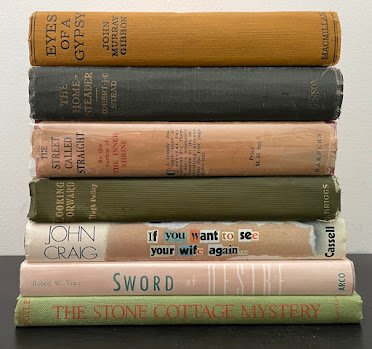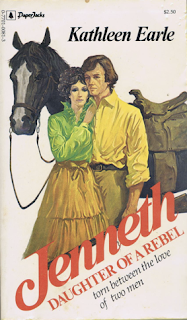The first review of
my first book was negative. The reviewer's disappointment had to do with my having written the book I wanted to write rather than the book he had wanted to read.
The second review of my first book was written by a man who was identified in same as the model for a throughly dislikeable character in George Galt's novel
Scribes and Scoundrels. The reviewer made no mention of this, though he did question my existence.
"Do not respond," a senior writer friend advised.
I didn't.
The reviews that followed were very positive. I remember nothing of them other than that – very positive – but I do remember the two negative reviews in detail. For example, I can tell you that the first reviewer got the price and page count wrong. I can also tell you that I was taken to task for not including an index. The book has one, but he'd read an advance copy. His was an amateur's mistake, published in the closest thing Canada has to "the organ of the trade".
Bad reviews stay with you in a way good reviews don't. I know not to read them. I don't read good reviews either. Every now and then I feel bad for not acknowledging a reviewer's kind words... and here I'm certain that they are all kind words.
"Do not respond."
Good advice I pass on to others. And yet all these years later I still fantasize about taking on the critics in question, which is why I so enjoyed Leo Heaps' thrust and parry with Patrick O'Flaherty found in 38-year-old editions of the
Globe & Mail.
A professor at Memorial University, Patrick O'Flaherty was tasked with reviewing
The Quebec Plot for the paper (22 July 1978). I have no idea why; I don't see that O'Flaherty had reviewed thrillers in the past. His opening sentence betrays a certain ignorance of the genre: "Leo Heaps, who has been reading James Bond stories and learning a little Canadian geography and history, has decided to write a thriller, some would say a
roman a clef about the Quebec situation."
Ignoring the obvious (
The Quebec Plot owes nothing to Ian Fleming)
, what irks is the insinuation that Heaps, then living in London, needed something of a refresher in things Canadian. This is very same thinking the most stupid of our cultural nationalists once employed against the great Mavis Gallant. Winnipeg-born Leo Heaps was the second son of A.A. Heaps. He was educated at Queen's and McGill, and lived most of his life in Toronto. At the risk of being accused of racism – more on that later – I find this quip about Heaps "learning a little Canadian geography and history" a bit rich coming from a man whose early education pre-dated his province joining Confederation. It's not O'Flaherty at his worst, but it's pretty bad. His lowest and laziest comes when he quotes two lines of dialogue out of context:
- "I hope to God there's no armed revolution in Quebec."
- "Let's get down to business."
This is a cheap trick that we've all seen before; indeed, Heaps himself recognizes it as such in his response. But before I get to that, O'Flaherty's conclusion is worth presenting in full:
Now, I'm the first to recognize that it is not always easy to come up with a decent conclusion to a review – look no further than
mine of The Quebec Plot for evidence – but this one is a real head-scratcher. On the other hand, I'm no academic, which is why I so appreciated the University of Toronto's June V. Engel, who in a letter the
Globe & Mail (1 Aug 1978) refers to Prof O'Flaherty's conclusion as "incomprehensible."
Engel wasn't alone in her criticism of the critic. An earlier letter found in the 28 July edition describes the professor's review as " jumbled, incoherent." The writer was someone named Caruso, who may or may not have been an academic him or herself.
By that time, Heaps had responded to the critic. In the 26 July 1978 edition of the
Globe & Mail, he shrugs off everything to do with his knowledge of Canada, associations with Ian Fleming, Marian Engel, Charles Templeton and
Little Orphan Annie creator Harold Gray, then presents a parting shot:
I have been away from Canada for some time and have grown accustomed to having my books read by literate people who are concerned both with their prose and the philosophical content of their reviews. If Mr. O'Flaherty is a professor of English in Newfoundland who is there to protect us from the academics who teach in our schools?
Fair question. I've been asking variations since my graduation from Beaconsfield High School.
Leo Heaps' letter drew no response from Patrick O'Flaherty, though Jack McClelland weighed in with a letter (4 Aug 1978), which reads in part:
At first I thought it was a bad Newfie joke. Then my reaction turned from disbelief to anger. Mr. O'Flaherty's judgement, in my opinion, ranks slightly below that of a Rhesus monkey and I have nothing against monkeys.
Was the publisher being disingenuous? "It happens that although I am not the publisher, I have read The Quebec Plot," McClelland writes of a novel he would publish within a year. Might as well add that he also published the novel about the cardinal who doesn't want the world to know about the discovery of Jesus' bones and the one in which a woman tries to copulate with a bear.
Curiously, it was McClelland's letter that brought a response from professor. Notably tardy, here he is from the 24 August 1978 edition:
The letter from Jack McClelland (Aug. 4) comes out with abusive, racist talk – "Newfie," "monkey," etc. This letter, contemptible though it is, merits a few words of reply.
In recent years I have reviewed a number of silly books published by McClelland and Stewart Ltd. rather harshly. Looking back over my reviews, my only regret is that they were not harsher.
What does a reviewer do when he is sent a trashy book to review? Normally, I, for one, return the item to the editor with a note saying that it is not worth reviewing. But there is so much writing in Canada – especially at the "creative" level – and so much of it is published with the assistance of the Canadian taxpayer, that it is hard to resist occasionally damning bad books. And so I stand by my review of Leo Heaps' book.
I imagine the professor does to this day, ignoring the simple facts that
The Quebec Plot received no taxpayer support and was never sold as anything other than a thriller.
The last word is owed Leo Heaps himself, as published in this letter in the 4 September 1978 edition:
I cannot resist taking a parting shot at my friend Patrick O'Flaherty who reviewed my book The Quebec Plot in your columns. I will miss the professor from Memorial College, Newfoundland, at his departure.
Professor O'Flaherty has in his letter to your newspaper on Aug. 24 presented such a perfect and inviting target that I felt it was irresistable. His remarks either hide a character of infinite subtlety and wit or one of enormous pomposity and self-righteousness. Personally, I am inclined to favor the latter view. Mr. O'Flaherty has sounded like the budding parliamemtary candidate he is when he protests against the waste of taxpayers' money on behalf of Canadian authors struggling to make ends meet. (Unfortunately, I have never had any grants. All my books have been published abroad, except one, which won a Governor-General's Award.) Perhaps the professor might tell us where the subsidy came from to publish his somewhat obscure anthology of Newfoundland and Labrador writing, which he co-edited some years back.
If Patrick O'Flaherty remains as severe as he is, "untroubled," as Browning said, "by the spark," and if he is allowed to indecently expose himself in book review columns, then one can begin to understand his concern about Canadian prose. One only has to read what the professor writes.
Yes, Heaps is owed the last word... but I can't quite bring myself to let him have it.
In January 2009, at a dinner celebrating the sixtieth birthday of the aforementioned senior writer, I was introduced to the second critic of my first book. On learning my name he paused – here it comes, I thought – and then said: "You wouldn't be any relation to Reverend David Busby? I was one of his altar boys."
"Yes," I replied, "he was my uncle."
"Nice man," said the critic.
"Yes, very nice," I said.
And then we parted.
Related post:














.jpg)





































